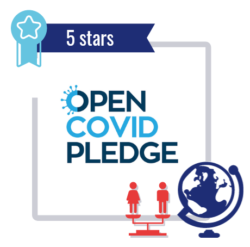Universities can achieve the highest possible score on the University Report Card: Global Equity in Biomedical Research by taking the following steps.

COVID-19
- Sign the Open COVID Pledge
ACCESS (GLOBALLY ACCESSIBLE PATENTING & LICENSING)
- Adopt a public commitment to global access licensing for university medical innovations. The strongest commitments are detailed, specific, and prioritize licenses that enable affordable generic versions of new treatments in low to middle income countries as defined by the World Bank.
- Provide information about global access licensing commitments and practices on the website of the university’s technology transfer office.
- Prioritize open, non-exclusive licensing of university technologies to promote competitive development and affordable end products.
- Refrain from seeking patents or “file and abandon” patents on university technologies in low- and middle-income countries, allowing generic drug makers there to produce low-cost versions of medicines developed from the university’s research.
- Include global access provisions in 100% of exclusive licenses for university technologies. For more information see the Equitable Technology Access Framework.
- Share best practices and know-how through events, publications, trainings and interactions.
INNOVATION (NEGLECTED DISEASE RESEARCH)
- Work to increase proportion of total medical research resources devoted to neglected diseases, with a goal of reaching a percentage equivalent to the global burden of these diseases (estimated at 10-15% of total disease burden based on disability-adjusted life-years – see “Medical Innovation for Neglected Patents“). Securing increased grant funding is important but not the only way to achieve this; universities can also recruit more faculty and students who specialize in these diseases, ensure they receive adequate training and support, and urge funders to increase overall investment in this area.
- Invest in projects that build the university’s neglected disease research capacity, such as training programs focused specifically on these diseases.
- Establish a major center or initiative dedicated to researching neglected diseases and neglected global health needs.
EMPOWERMENT (GLOBAL HEALTH EDUCATION)
- Offer dedicated global health centers, programs, majors and/or study tracks in medical, law and public health schools.
- Develop innovative and effective global health initiatives supported by grants from global health funding sources such as the NIH’s Fogarty International Center.
- Provide courses on the role of university patenting, licensing and technology transfer in global health, and how these policies impact global pricing and accessibility of medical innovations.
- Provide courses that specifically educate students about the burden of neglected diseases and the need for increased research.
- Work with UAEM staff to host or sponsor conferences, symposia and other campus events that focus specifically on neglected disease research, licensing for global health, and the global health impact of universities.
Transparency
- Disclose the amount of public, private, and philanthropic funding received for clinical trial research through public registries, databases, and Freedom of Information Act requests.
- Develop institutional policies that require researchers to publish all clinical trial data. Facilitate researchers’ ability to access and publish in recognized clinical trial registries.
- Sign the WHO Joint statement on public disclosure of clinical trial results, endorse the Institute of Medicine’s Sharing Clinical Trial Data Report and UAEM’s global campaign on University Norms on Transparency, and publicly state your support for clinical trial data transparency and the need to publish all clinical trial results (for example, on your institution’s website).
- Require researchers to prospectively register all clinical trials with an appropriate registry before subjects are enrolled.
- When engaging in commissioned research from private companies, do not give these companies the ability to affect or prevent data publication.
- Make information on your clinical trial policies easily accessible online and cooperate with UAEM by submitting Report Card self-reports and surveys.